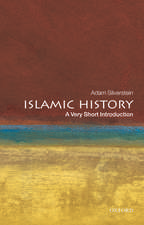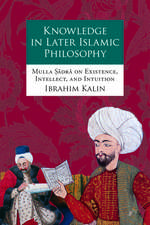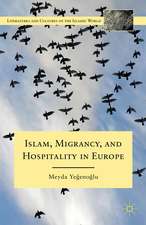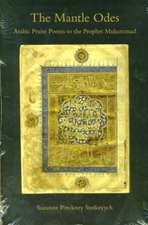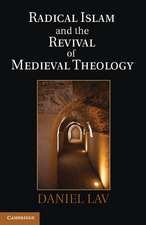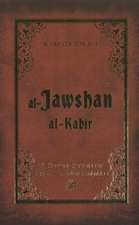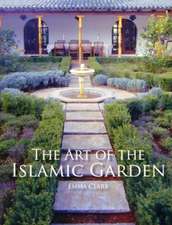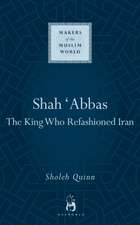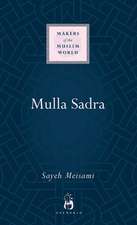Islam: A Mosaic, Not a Monolith
Autor Vartan Gregorianen Limba Engleză Paperback – 28 mai 2004
After World War II, leading western powers focused their attention on fighting the "Red Menace," Communism. Today, as terrorist activity is increasingly linked to militant Islamism, some politicians and scholars fear a "Green Menace," a Pan-Islamic totalitarian movement fueled by monolithic religious ideology. Such fears have no foundation in history, according to Vartan Gregorian. In this succinct, powerful survey of Islam, Gregorian focuses on Muslim diversity and division, portraying the faith and its people as a mosaic, not a monolith. The book begins with an accessible overview of Islam's tenets, institutions, evolution, and historical role. Gregorian traces its origins and fundamental principles, from Muhammad's call to faith nearly 1,400 years ago to the defeat of the Ottoman Empire in World War I, and the subsequent abolition of the Caliphate. He focuses particular attention on the intense struggle between modernists and traditionalists, interaction between religion and nationalism, and key developments that have caused bitter divisions among Muslim nations and states: the partitions of Palestine, the break up and Islamization of Pakistan, the 1978 revolution in Iran, and the 1979 Soviet invasion of Afghanistan. Today Islamist views range across the entire spectra of religious and political thought, and Islamism is anything but a unified movement. While religious extremists have attempted to form a confederacy of like-minded radicals in many countries, much of the Muslim population lives in relatively modern, secular states. Gregorian urges Westerners to distinguish between activist Islamist parties, which promote—sometimes violently—Islam as an ideology in a theocratic state, and Islamic parties, whose traditional members want their secular political systems to co-exist with the moral principles of their religion. Gregorian emphasizes the importance of religion in today's world and urges states,societies, and intellectuals to intervene in order to prevent Islam--as well as other religions--from becoming the political tool of various parties and states. He recommends continuing dialogues between modernist and traditionalist Muslims, as well as among the educated, secular elite and their clerical counterparts. He also urges U.S.-led efforts to engage and better understand the diversity of Muslim communities in the United States and the world. Lamenting widespread U.S. ignorance of the world's fastest-growing religion, Gregorian calls on "enlightened citizens" to promote international understanding, tolerance, and peace.
Preț: 180.11 lei
Nou
Puncte Express: 270
Preț estimativ în valută:
34.46€ • 36.11$ • 28.49£
34.46€ • 36.11$ • 28.49£
Carte tipărită la comandă
Livrare economică 11-25 aprilie
Preluare comenzi: 021 569.72.76
Specificații
ISBN-13: 9780815732839
ISBN-10: 081573283X
Pagini: 144
Ilustrații: black & white illustrations
Dimensiuni: 140 x 216 x 12 mm
Greutate: 0.25 kg
Ediția:Revised
Editura: Brookings Institution Press
Colecția Brookings Institution Press
ISBN-10: 081573283X
Pagini: 144
Ilustrații: black & white illustrations
Dimensiuni: 140 x 216 x 12 mm
Greutate: 0.25 kg
Ediția:Revised
Editura: Brookings Institution Press
Colecția Brookings Institution Press
Notă biografică
Descriere
After World War II, leading western powers focused their attention on fighting the "Red Menace," Communism. Today, as terrorist activity is increasingly linked to militant Islamism, some politicians and scholars fear a "Green Menace," a Pan-Islamic totalitarian movement fueled by monolithic religious ideology. Such fears have no foundation in history, according to Vartan Gregorian. In this succinct, powerful survey of Islam, Gregorian focuses on Muslim diversity and division, portraying the faith and its people as a mosaic, not a monolith. The book begins with an accessible overview of Islam's tenets, institutions, evolution, and historical role. Gregorian traces its origins and fundamental principles, from Muhammad's call to faith nearly 1,400 years ago to the defeat of the Ottoman Empire in World War I, and the subsequent abolition of the Caliphate. He focuses particular attention on the intense struggle between modernists and traditionalists, interaction between religion and nationalism, and key developments that have caused bitter divisions among Muslim nations and states: the partitions of Palestine, the break up and Islamization of Pakistan, the 1978 revolution in Iran, and the 1979 Soviet invasion of Afghanistan. Today Islamist views range across the entire spectra of religious and political thought, and Islamism is anything but a unified movement. While religious extremists have attempted to form a confederacy of like-minded radicals in many countries, much of the Muslim population lives in relatively modern, secular states. Gregorian urges Westerners to distinguish between activist Islamist parties, which promote—sometimes violently—Islam as an ideology in a theocratic state, and Islamic parties, whose traditional members want their secular political systems to co-exist with the moral principles of their religion. Gregorian emphasizes the importance of religion in today's world and urges states,societies, and intellectuals to intervene in order


